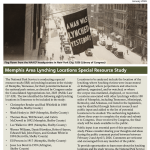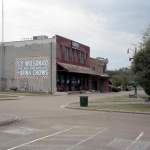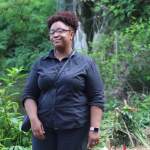“The Way To Make Things Right”
Rabbi Micah D. Greenstein, Temple Israel – Memphis
December 8, 2017 ~ Kislev 21, 5778 (Shabbat Before Chanukah)
My dear friends, at the darkest time of year, on the eve of the 25th day of the lunar month of Kislev which falls this Tuesday evening, Jews everywhere will kindle the first light of Chanukah. “A little light drives away much darkness,” the early rabbis said. Every good act, every healing gesture, every note of hope and forgiveness lights a candle of hope in a dark world. The extraordinary London Reform Rabbi & community leader who survived Auschwitz, Rabbi Hugo Gryn (z”l) teaches a related and imperishable lesson from his own childhood. When the then twelve-year-old Hugo and his father were among the starving Jews in the death camps, a fellow Jewish prisoner had announced that Chanukah would begin at sunset. Hugo thought his dad was crazy when he told his son to save the one butter pat they were given, and to use it as oil to light the Chanukah lights. “But they’re starving us to death dad,” Hugo replied. “My dear son,” his father said, “You and I have learned in this place called Auschwitz that a person can live for three days without food. But I want you to always remember looking at these lights, that a person cannot live for three minutes without hope. These Chanukah lights, Hugo, are lights of hope.”
Hugo and his father miraculously survived, his other family members did not, but his point holds and was echoed by the Rev. Martin Luther King, Jr. over 50 years ago, when King said, “Darkness cannot drive out darkness; only light can do that. Hate cannot drive out hate; only love can do that.” Here we are almost 50 years after King left us standing on a balcony in downtown Memphis when he was only 39 yrs old. Here we are days before Chanukah seeking ways to live the words we pray & fulfill what Rabbi Gryn’s father was teaching his son even at Auschwitz – that to be a Jew, to be a child of God, is to increase the light. To remember that a warm fire begins with a tiny spark and that only when light is joined to light can we possibly find a way forward. This is one of the enduring spiritual messages of Chanukah - to the spark in our souls, the light that must not be extinguished, the spark that must glow brightly not just for 8 days, but for all our days. The spark of justice, kindness & compassion.
Travel to Europe & walk the streets of Germany these days, and you will likely stumble on stones called Stolpershtineh, a cobblestone-size stumbling stone bearing a brass plate inscribed with the name & life dates of Nazi victims. The stolperstine art project was initiated by a non-Jewish German artist 25 years ago and is ongoing. It aims at commemorating individual persons at exactly the last place of residency—or, sometimes, work—before he or she fell victim to Nazi terror. Get this. Over 60,000 stolperstine have been laid in 22 European countries, Germany, Austria, Italy, Netherlands, Hungary, Greece, Romania, France, Norway, Belgium, the Czech Republic, Lithuania, and the list goes on, making it the world's largest decentralized memorial.
While the majority of stumbling stones commemorate Jewish victims of the Holocaust, others have been placed for gypsies taken to death camps, homosexuals, Jehovah's Witnesses, black people, members of the Christian opposition to the Nazis (both Protestants and Catholics), and the physically or mentally disabled murdered by the Nazis. So Germany and the 21 other countries with Stolperstine have faced their history and not hidden it, while we in American have never faced or even marked the sites where 4,000 black people were lynched in 1897-1950, 27 publicly hanged right here in Shelby County alone. We never faced the terror & history so that we may become reconciled with our collective past - until now.
It was Memphian Ida B. Wells who said, “The way to right wrongs is to turn the light of truth upon them.” That’s the motto of the holy project Rabbi Bauman & I support whenever we are able. It’s called The LSP, led by Memphians who want the whole truth to be told about the history of Shelby County instead of ignoring or hiding it. The truly wonderful people behind this project believe that we can only heal & grow in understanding and compassion as people of faith when we face openly the history of racial violence in our community most of us would understandably prefer to forget or never face because of the pain.
But there is another reason why Jews, in the spirit of Chanukah, resonate strongly to the LSP. When the 600,000 wretched survivors of the Holocaust, the men, women, and children who witnessed 6 million family members and friends burned alive, lynched, gassed & murdered – when these traumatized survivors made their way to the land of Israel, they erected a memorial for the 6 million, including the 1.5 million children whose lives were cut short. They needed a title for this project to remember and dignify those in unmarked graves whose bodies would never be found. So they turned to Scripture, Isaiah 56:5, where it says, "And to them will I give in my house and within my walls a Yad Vashem –a memorial and a name... that [their memory] shall not be cut off.”
In other words, Judaism teaches that we emulate God and keep memory alive by giving a name to the nameless. Rabbi Bauman spoke at the ceremony memorializing one such name where the LSP, Facing History and Overton High School students placed a memorial this past May, 100 years almost to the day after a lynching party chained a black man named Ell Persons to a log, doused him in gasoline, and burned him alive. An estimated 5,000 spectators witnessed his death or viewed his remains soon afterward. Later that day, his head and foot were dumped on Beale Street for black pedestrians to see. It was the rabbi of this Temple, William Fineshriber, who took action, convincing the membership of Temple in 1917 to go public with a condemnation. Temple’s Rabbi acted as secretary & spokesman for the group of Memphis clergy who spoke out in the newspaper and around the city. No one was brought to trial in these slayings, so in 2017, we’re locating the sites as German Christians are doing in Europe & hope to place memorials at each one, giving names to the nameless, like Yad Vashem.
There is another religious call to action evoked by Elie Wiesel in his book, Night. Wiesel writes: One day when we came back from work, we saw three gallows rearing up in the assembly place, three black crows. Roll call. SS all around us; machine guns trained. 3 victims in chains, one of them, a little boy, a sad-eyed angel. The Nazis seemed more preoccupied, more disturbed than usual. To hang a young boy in front of thousands of spectators was no light matter. The head of the camp read the verdict. All eyes were on the child. He was lividly pale, almost calm, biting his lips. The gallows threw its shadow over him. This time the adult Jew whom the Nazis had forced to be the executioner refused to act as executioner, so three Nazis replaced him. The 3 victims mounted together onto the chairs. Their necks were placed at the same moment within the nooses. “Long live liberty!” cried the two adults. But the child was silent. Someone behind Wiesel asked, “Where is God? Where is He?” Total silence throughout the camp. On the horizon, the sun was setting. “Bare your heads!” yelled the head of the camp. We were weeping. Then the forced march past the victims began. The two adults were no longer alive, but the third rope was still moving; being so light, the child was still alive...For more than half an hour he stayed there, struggling between life and death, dying in slow agony under our eyes. And I, Elie Wiesel, had to look him full in the face. He was still alive when I passed in front of him. Behind me I heard the same man asking: “Where is God now?” And I heard a voice within me answer him: “God is hanging right here on these gallows.”
A highlight of my life was driving Elie Wiesel back to the airport after his Temple talk in 1993. The Bosnian war was raging, with widespread accounts of rape and genocide. I, a 30-year-old rabbi asked Wiesel, “How do you keep your Jewish faith during dark times?” And with his inner voice that answered “Where is God? God is hanging here on the gallows,” he answered. “How do I keep my Jewish faith during dark times? By helping God.” I also asked him which of the 613 commandments was the most important of all, & without delay, he replied, “Lo ta’amod al dam ray’echa –you must not stand idle while your neighbor bleeds.” And neighbor is not a geographic term, it’s a moral concept.
So friends, when we kindle the first Chanukah light on Tuesday with the helper candle, may each of us do what Wiesel & Hugo Gryn & ALL of us CAN do as helpers of God, by kindling the lights of truth, justice, kindness, compassion, and hope- and to increase those lights wherever we find darkness & despair, not only in faraway places, but in this city we love. It is the silver linings of leaders like Rabbi Gryn and Elie Wiesel, and causes like the Lynching Sites Project of Memphis, that restore faith in our collective humanity. Amen.








































